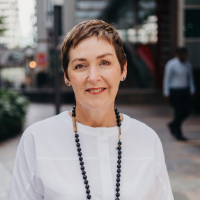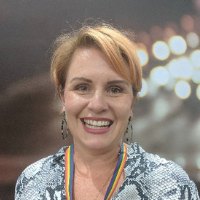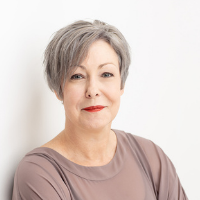This session took place on the Workforce & Skills day at Melbourne EdTech Summit 2021. Speakers included Belinda Tynan, Sally Curtain, and Claire Field. They discussed how to prepare students for the workplace and how to meet industry needs for talent.
Job-ready graduates is the goal. But what jobs are we preparing these graduates for? The jobs that exist today, the jobs we think might be there tomorrow, and the jobs that we hope will be there. What is the intersection between education and industry in a rapidly evolving labour market?
This in-conversation included Belinda Tynan, Provost of Australian Catholic University (ACU); Sally Curtain, CEO of Bendigo Kangan Institute (BKI), and Claire Field, Principal at Claire Field & Associates.
What have been the major changes in your institutions?
How are you meeting market needs?
How to engage with SMEs, not just big business?
What are you wanting secondary schools to upskill students in?
What does the future look like for microcredentials and short courses?
What have been the major changes in your institutions?
At ACU, people are flocking towards traditional degrees like teaching and nursing. There’s been a dip in students enrolling in humanities degrees, says Belinda Tynan. Some of the masters degrees that normally have a significant international student enrolment have been impacted, particularly degrees like cybersecurity. However, there has been some growth in short courses.
Similarly at Bendigo Kangan Institute, students are interested in the health field. An area that was very popular pre-pandemic was hospitality and tourism — this, consequently, has had a dip in interest due to the current restrictions upon the industry. Trades are still incredibly popular.
Technologies are constantly evolving, so vocational education must always be at the forefront of knowing the latest solutions in industry.
Vocational education is incredibly adaptive.
Sally Curtain, Bendigo Kangan Institute
Claire Field echoed that it seems that institutional changes are reflected by what students are seeing as employable careers.
How are you meeting market needs?
Proximity to industry helps with designing the courses, says Sally Curtain. They talk to their neighbours about what they’re really looking for in their future employees. They’re keen to create a pipeline of talent that will meet their needs.
We’re located in Cremorne. I’m advised, potentially, it has the highest concentration of tech talent in the world…and smack bang in the middle is the Kangan campus.
Sally Curtain, Bendigo Kangan Institute
Belinda Tynan says it’s really important to find like-minded partners when developing work-integrated learning programs. Universities and industry can work together to ensure they are facilitating outcomes that matter for the student, the workforce, and the institution. From research & development to joint ventures, there are many ways to work with industry — not just internships.
How to engage with SMEs, not just big business?
Apprenticeships are a fantastic way to connect with SMEs, says Sally Curtain. It shouldn’t be one or the other, though. We should lean on big business to help and then to deliver that at scale to everyone.
Belinda Tynan sees it as more about the labour market. There are state-based and national needs for an uptick of graduates in certain industries.
Whether you’re an SME or big business, they are driven by the labour market.
Belinda Tynan, Australian Catholic University
What are you wanting secondary schools to upskill students in?
Sally Curtain’s hope is that the mad rush to transition from secondary school to training or tertiary learning should not exist anymore. They are more likely to have multiple different careers over the course of their lifetime, upskilling along the way.
If anything, we need to instil a passion for learning — something that secondary schools already do incredibly well. I would be encouraging students to follow their interests.
Sally Curtain, Bendigo Kangan Institute
Belinda Tynan said that through following her nephew’s schooling journey, she noticed that perhaps more career advice would have been helpful to know what the next step could be.
What does the future look like for microcredentials and short courses?
Lifelong learning has suddenly become sexy again, says Belinda Tynan. With microcredentials, we don’t have a concrete definition as of yet that we can agree on. They don’t have a clear currency. The learner isn’t sure of what they are getting with a microcredential, like they might know with a degree or a certificate.
[Microcredentials] is an area that’s burgeoning, and everyone is interested in it.
Belinda Tynan, Australian Catholic University
Microcredentials can support good careers, and are intimately involved in reskilling and upskilling workers. While a stack of microcredentials may not be able to replace the value of a formal qualification, they have become an integral part of offering targeted skills.
Speakers

Belinda Tynan
Professor Belinda Tynan became ACU’s new Provost in February 2021. Previously from RMIT, where she was Deputy Vice-Chancellor (Education) and Vice President. She was also a director of RMIT Online. Belinda served as Pro Vice-Chancellor of Learning and Teaching Innovation at The Open University in the UK, Pro Vice-Chancellor Learning, Teaching and Quality at the University of Southern Queensland. Professor Tynan holds a doctorate in distance education from the University of Western Australia and a Masters in online learning from USQ. An accomplished educator, Professor Tynan has considerable experience in digital innovation, online education, industry-enabled curriculum and technology-enhanced practices.

Sally Curtain
Sally Curtain is an accomplished public sector senior executive with significant experience in leading transformational change across state and local government. Prior to her appointment as Bendigo Kangan Institute’s Chief Executive Officer, Sally successfully led organisational and operational changes within diverse and complex public sector agencies. This included restructuring the former Department of Justice to better meet the needs of regional communities. As Chief Executive Officer of Bendigo Kangan Institute, Sally brings vision, innovation and passion to its people while placing customer needs at the centre of focus.

Claire Field
Claire Field provides strategic advice on VET, international education and private higher education to providers, investors and other tertiary education stakeholders. She has a weekly column in Campus Morning Mail and offers a subscription service providing expert insights on the Australian tertiary sector. Claire is the host of the ‘What now? What next? Insights into Australia’s tertiary education sector’ podcast. She is a past CEO Australian Council for Private Education and Training and has held senior roles in State and Federal government agencies.

